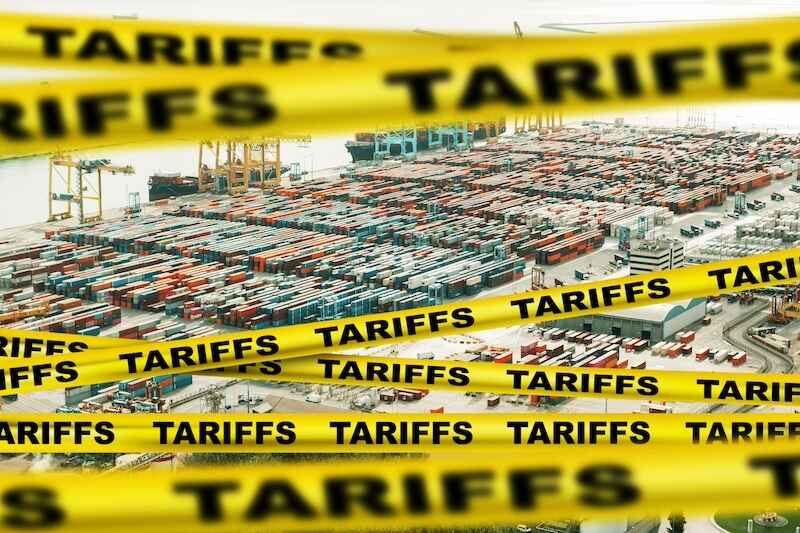If You Own Any of These Seven “Toxic Stocks,” Sell Them – Today
Shah Gilani|May 27, 2021
In yesterday’s Total Wealth, I told you all about the risks of “Toxic Stocks” – the flawed, overvalued, ready-to-plunge shares that can eviscerate your portfolio.
I even detailed seven “signs” that you might own one of these toxic plays, which you can read more about by clicking here.
But I also made a promise.
I told you I’d circle back with an example of each of these “toxic types.”
Today I’m doing exactly that: I’ve brought you a list of seven “toxic stocks” that aren’t worth holding.
If you own any of these, sell them. Today…
Run for Your Financial Life
Toxic Stock Type 1: The “Go-Nowhere” Venture: There’s no more perfect example of this “stay-away” play than Planet Fitness Inc. (NYSE:PLNT). The company went public in the summer of 2015, but it’s been around since 1992 and it commits the cardinal sin of longtime public companies: It loses money. You know, everyone should work out. And I’m betting that maybe you’ve thought about joining the Planet Fitness because its monthly dues are so cheap. But all you have to do is look at Planet’s revenue to see how “successful” the company’s business model has been. I’ll even make a second wager here: When you look at Planet’s $6.7 billion market cap, and see that its revenue over the past 12 months was only $345 million, you’ll be shocked.
That’s not a lot of revenue for a company with thousands of gyms and thousands of customers – especially when it can pump up its sales by selling gym equipment to franchise owners. Exacerbating that skimpy revenue is the fact that Planet Fitness lost more than $18 million over the past year. Maybe that has something to do with their negative profit margin, or the firm’s almost-$2 billion in debt.
But just looking at the thin revenue after being around all those years tells you this is a toxic stock.
Sell it.
Toxic Stock Type 2: The Hype Train: One of the most overly hyped stocks, that had a good run, for about a minute, is Grubhub Inc. (NYSE:GRUB). After IPOing in 2014, the stock caught fire in 2018 and took off like a rocket. And that’s when the hype became positively deafening. Then, just as fast as Grubhub rose, it crashed right back to earth. Of course, the hype machine revved up again around the pandemic because everyone was having food delivered, and that’s what Grubhub does. And so, the stock, accompanied by hype, rocketed anew.
But this was just misleading hype and it’s already quieting down. That’s because GRUB’s revenue has already slowed, because there’s more competition in the space and it charges more than its rivals – and because customers are starting to realize GRUB is soaking the restaurants people love to order from. The stock is toxic, plain and simple. You can see it in the company’s faltering earnings growth and in the stock’s lackluster performance. The overhyping is a trap. Sell it.
Toxic Stock Type 3: The Debt Bomb: The posterchild of toxic stocks here is Vornado Realty Trust (NYSE:VNO), the real estate investment trust (REIT). REITs have to pass through at least 90% of their funds from operations to shareholders as dividends, and VNO’s attractive 4.64% dividend yield is pretty sweet. Or, it is until you look at how much money Vornado makes, and you find out the REIT is actually losing money. In the last 12 months, on revenue of more than $1.56 billion, Vornado actually lost more than $349 million. So, how is the company paying that big, fat dividend? The company is borrowing money, that’s how. That means Vornado’s mountain of debt – nearly $8 billion worth – will only keep rising. That means at some point the dividend will be in jeopardy.
This stock may look good because of its dividend. But good luck getting past that growing pile of debt. It’s a toxic REIT. Sell it before its execs are forced to slash the dividend.
Toxic Stock Type 4: The Scam Artist: If the investment gods created “Wanted” posters for the crooked players in the stock market, one of the “most wanted” would be Luckin Coffee Inc. (OTC:LKNCY) – the so-called “Starbucks of China.” After expecting a sensational Starbucks-like story of zooming revenue and profits and a soaring stock price, we find out Luckin was all wrong about its revenue. But not wrong by accident – wrong by fraud (if there even is such a thing). How much did the darling company misrepresent revenue growth by? How about by 100%, according to a class-action lawsuit filed on behalf of a couple of pension funds.
When companies don’t play by the rules, invent their own rules, or just flat-out cheat – you’re looking at a toxic firm.
Luckin fits the bill.
Sell it.
Toxic Stock Type 5: The Also Ran: Investors talk about “Best-in-Breed” companies. Then there’s the “Best-in-Breed’s” opposite number – the also-ran.
The specific one I’m thinking about here is RE/MAX Holdings, Inc. (NYSE:RMAX), which you definitely know, and probably own or are thinking about buying it.
Don’t do it.
RMAX, as long as it’s been around, only had $268 million in revenue over the last 12 months. Compare that with Zillow Group Inc. (Nasdaq:Z), which had $3.43 billion – making RE/MAX look pretty lame.
I don’t care that RE/MAX made a little money – because at a profit margin of 1.55%, we’re not just talking “little,” but actually “microscopic.”
I also don’t care that RE/MAX’s balance sheet and cash flow metrics are all in good shape. The company’s going nowhere – amid one of the hottest housing markets in years. And that makes RE/MAX toxic – end-of-story. Dump it.
Toxic Stock Type 6: The Longshot: Everyone knows a few hot gambling stocks and most people assume they’re all hot because gambling is hot. But Esports Entertainment Group Inc. (Nasdaq:GMBL) isn’t a hot company and betting on its stock is nothing but pure, wrongheaded gambling.
The odds are against you here – way against you – because this company has tiny revenue of less than $8 million and lost almost $20 million over the last 12 months. If you want to bet on a company with a negative profit margin (in this case a minus-246%), good luck.
Not all gambling stocks are hot, and this one’s a toxic bet. Sell it.
Toxic Stock Type 7: The Game-Player: All “games” have winners and losers. But when it comes to toxic stocks, it’s the shareholder who ends up on the losing end.
We call this type the “game-player” because we’re talking about companies that seek to game the system. And one of the best examples is a company that’s a devotee of “financial engineering.”
The company I’m thinking about here is Revlon Inc. (NYSE:REV). Don’t get me wrong here, the guy who really runs Revlon is Ron Perelman, who – believe me – is one smart cookie, as in “billionaire cookie.” Ron was in the right place at the right time in the 1980s, when junk-bond king Michael Milken was minting billionaires. Ron ended up with Revlon in one of those deals.
And Revlon was a great company – so great, in fact, that Perelman used its cash and balance sheet to leverage the company to the hilt. And that, folks, is the essence of financial engineering. Why did he do this? Because he could. Because the act of saddling Revlon’s balance sheet with $3.39 billion in debt and only $85 million in cash helped Perelman buy and leverage other companies, as is his wont.
The problem with Revlon – which unfortunately now is a very toxic stock – is that all this financial engineering is backfiring, as it is for Perelman himself. Ron’s leverage across all his “assets” has come back to haunt him. His worth has plummeted to just $4.5 billion from a high of almost $20 billion.
But don’t cry for Ron: He’s still rich.
As for Revlon … not so much. In fact, the only thing Revlon’s stock has going for it is the huge short position investors have on it. Maybe Ron will get the Reddit crowd to engineer a short squeeze so the stock pops and he can issue some more shares. That would be the ultimate engineering feat.
But don’t count on it. And don’t count on Revlon. It’s a toxic stock. Sell it.
That’s all for today, but make sure you check your inboxes again tomorrow for my weekly BS.H! This is going to be a good one.
If you haven’t sent me your watchlist of stocks, drop me a line at shah@totalwealthresearch.com. I want to know what’s on your minds this week.
Until then, stay well.
Shah

Shah Gilani
Shah Gilani is the Chief Investment Strategist of Manward Press. Shah is a sought-after market commentator… a former hedge fund manager… and a veteran of the Chicago Board of Options Exchange. He ran the futures and options division at the largest retail bank in Britain… and called the implosion of U.S. financial markets (AND the mega bull run that followed). Now at the helm of Manward, Shah is focused tightly on one goal: To do his part to make subscribers wealthier, happier and more free.

